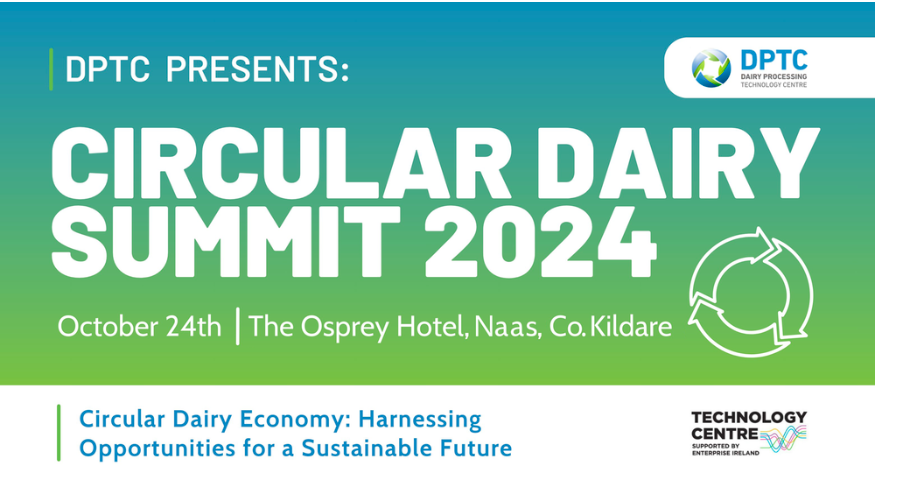RGFI received leadership recognition from the Business Post this month, as CEO PJ McCarthy,…
11% of Irish natural gas demand could be substituted with sustainable biomethane by 2030.
[I June 2022] Ireland has the capability to produce sustainable biomethane which will help decarbonise the most difficult to abate, high thermal demand manufacturing and processing industries, as well as transport and agriculture, while reducing waste and supporting the transition to agroecology. Up to 11 % of current natural gas demand in Ireland could be substituted with sustainably produced biomethane by 2030, when and if the correct policy supports are in place – according to a shared Vision and Roadmap for AD Biomethane Production in Ireland, published today by the Renewable Gas Forum Ireland (RGFI).
Speaking to the RGFI/ REGATRACE event in Dublin today, Matthieu Ballu, a senior EU Commission official, outlined details of the recently announced REPowerEU plan, which includes a biomethane production target of 35 bcm by 2030. Mr Ballu, who is responsible for Renewables and Energy System Integration Policy, said the Biomethane Action Plan, contained in REPowerEU, sets out tools including a new biomethane industrial partnership and financial incentives to increase production to 35bcm by 2030, including through the Common Agricultural Policy. The Commission will continue to support innovative technologies for the production of sustainable biomethane,avoiding the use of food and feed feedstocks that would lead to land use change problems. By 2024, Member States have to separately collect organic waste, which can be valorised in anaerobic digestors. This is an opportunity to upscale the production of biogas and biomethane sustainably, creating income opportunities for farmers and foresters.
Ireland, with its grass based agricultural systems, has the highest potential for biomethane production per capita in the EU and a proven business case as documented by the RGFI commissioned KPMG Integrated Business Case for Biomethane Production 2019 and subsequent reports.
“The speedy scaling up of biomethane produced from sustainable agricultural feedstocks as well as other biodegradable materials , is a cost-efficient path to both reduce imports of natural gas as well as assist in decarbonising hard-to-abate pillar industries of manufacturing and processing and transport sectors and the creating of diverse income opportunities for farmers.
“The biomethane industry in Ireland is mobilising, designed to be scalable and is preparing to invest up to €1.8 billion over the coming decade. There are plans to develop up to 125 anaerobic digester plants by 2030, based on a Government commitment to announce the Renewable Heat Obligation Scheme in coming weeks , which could deliver up to 2.5 (TWh) of sustainable biomethane. The Irish AD biomethane sector has the capability and commitment to replace approximately 11 % of the current gas consumed in Ireland with biomethane. However, without the necessary Government policies and support, the capacity is not there to realise this level of ambition.
Timing is of the essence for Ireland to adopt a considered and collaborative approach, across Government, across industry and to co-ordinate plans to achieve the national emissions targets by 2030 as well as the REPowerEU biomethane target. What is needed now is for Government to come to the table with policy support on key elements of planning, market conditions, regulation, matching funding, and the earliest announcement of the Renewable Heat Obligation Scheme”, said Mr PJ McCarthy, CEO of RGFI.
The principal elements of the Roadmap for AD Biomethane production in Ireland, published today are:
- a consumer-led collaboration to develop a scalable, sustainable biomethane industry
- based on environmentally responsible production, with end use biomethane contributing to the circular bio-economy, while delivering socio economic benefits
- a focus on difficult to decarbonise sectors e., addressing the thermal demands of industry, and agriculture
- supporting sustainable, diverse, profitable agriculture and the circular rural bioeconomy and its principles
- supporting sustainable transport
- aligned with EU and National sustainability and climate action policies
- Green Gas Certification in place;
- underpinned by an AD Charter
Irish agriculture well placed
Biomethane has the potential to decarbonise thermal heat in manufacturing and processing sectors, as well as transport and will support a move towards carbon farming (with the production of sustainable feedstock, organic farm practices, biofertilisers, increased productivity and associated positive impacts on biodiversity, air and water quality) as well as other positive socio- economic, and environmental benefits.
Ireland is well placed in relation to sustainable agriculture feedstock, including multispecies swards, according to Dr Paul Crosson of Teagasc, who addressed the REGATRACE launch today.
Teagasc has confirmed the availability of 2 -4m tonnes of sustainable feedstock for AD biomethane. RGFI suggest that a provision of circa 2 to 3% of this sustainable feedstock would be made available as a backstop in the event of future fodder shortages.
For Irish farmers and the processing sector, this will assist in decarbonising the agri food supply chain – further supporting the global marketing of Irish food and drinks products. A sustainable, agriculture feedstock-based AD biomethane industry in Ireland will also enable the following
- Security of supply, storage, and energy price stability
- Commercial sustainability and competitiveness
- Animal slurry management and mitigation of potential Nitrates Directive limitations /
- Improved soil quality and
- delivering improved air, water,
- Supporting the development of a bioeconomy
- secure supply of organic fertilisers from AD and reduced chemical fertiliser and herbicide
- opportunity to earn a guaranteed income from the implementation of improved land managementpractices:
- other complementary farm incomes providing rural investment and income diversification
Some of the points raised by speakers at the REGATRACE/RGFI Knowledge Sharing event include:
- the European experience has proven how AD biomethane is an integral role to play in decarbonisation ambitions at national, food processing and farm level but that it can also diversify the income streams of farmers – CEO of the European Biogas Association, Harmen Dekker
- Many solutions proposed to decarbonise transport are still conceptual and / or uneconomical, particularly when applied to HGVs. However, biomethane is ready to be implemented now, subject to necessary Government policy and legislative supports, and capital funding to meet targets to 2030 . Biomethane has been recognised as a zero emissions biofuel under Ireland’s Climate Action Plan 2021 and it has an important role to play as a renewable fuel for transport. Ronan Murphy, Vision Green.
Download
Ireland Roadmap for Biomethane



